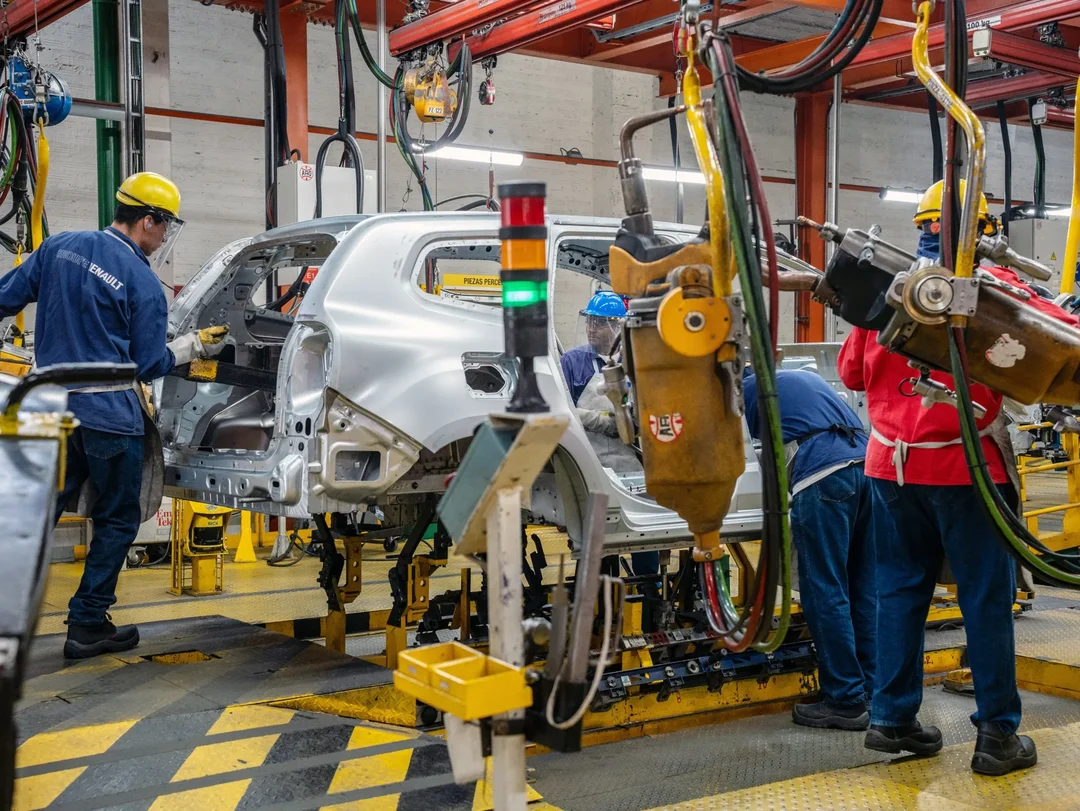
Auto Industry Stocks Surge As Trump Floats Tariff Relief For Car Companies
Detroit was abuzz Monday as shares of major automakers surged, following President Donald Trump’s unexpected remarks signaling possible tariff relief for car companies. The President, speaking in the Oval Office during a meeting with Salvadoran President Nayib Bukele, hinted at flexibility in his approach to the recently imposed automotive tariffs—a move that sent ripples through the financial markets and the automotive industry nationwide.
“I'm looking for something to help some of the car companies, where they're switching to parts that were made in Canada, Mexico and other places, and they need a little bit of time, because they're going to make them here,” Trump said. The President suggested that while his ultimate goal is to boost domestic manufacturing, he recognizes the complexity of supply chains and the need for a phase-in period. “They need a little bit of time, so I'm talking about things like that,” he added, underlining both his flexibility and resolve: "I am a very flexible person. I don't change my mind but I am flexible. And you have to be because you can't have just a wall and you go along it, sometimes you have to go around it, under it or above it."
The market responded swiftly. Shares of Ford Motor, General Motors, and Chrysler parent Stellantis saw gains between 1% and 4%, rebounding from earlier negative or flat trading. Rivian Automotive shares rose 3%, while Toyota and Honda edged up less than 2%. Tesla, in contrast, fell by about 2%. The uptick illustrates the sensitive relationship between White House policy signals and investor sentiment in the auto sector.
Trump’s comments come on the heels of a 25% tariff on imported vehicles, enacted April 3, marking a significant step in the administration’s “America First” industrial policy. In recent days, the White House also exempted certain electronics and smartphones from tariffs—a move that some interpreted as a gesture toward major U.S. tech firms dependent on global supply chains, notably Apple. Nevertheless, the President maintained that these exclusions are “short-lived” and reaffirmed, “no one was getting off the hook.” China, reacting to the tariff exemptions on electronics, said the move represented a "small step" toward correcting what they call the U.S.'s “erroneous unilateral practice of reciprocal tariffs.”
Automakers themselves have taken varied approaches. Domestic giants Ford and Stellantis have rolled out temporary employee pricing deals to stimulate sales amid the uncertainty, while foreign manufacturers like Jaguar Land Rover have suspended U.S. shipments. Hyundai, meanwhile, pledged not to raise prices for at least two months to reassure consumers caught in the crossfire of tariff politics.
The unfolding story is emblematic of the complexity in balancing industrial policy, international trade, and consumer interests. Trump’s willingness to entertain temporary exemptions reveals both the political sensitivities and economic stakes behind the tariffs, especially as the automotive industry wrestles with transforming its supply chains.
As the dust settles, industry leaders, investors, and consumers alike are watching for the next move. Will temporary relief be enough to prevent disruption, or do these shifting strategies signify rougher roads ahead for carmakers and buyers? Readers—how do you see tariff maneuvering impacting the vehicles you drive or the companies you invest in? Share your opinions and join the conversation below.